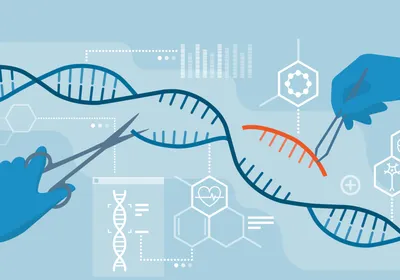ABOVE: © ISTOCK.COM
YOYOCHOW23
Researchers from Kunming Institute of Zoology, Chinese Academy of Sciences, and the University of North Carolina have reported successfully editing a human gene into rhesus monkeys in a study published on March 27 in National Science Review. The gene is said to be important for human brain development and the treated monkeys subsequently showed human-like brain development, reports China Daily.
The human gene, microcephalin or MCPH1, is expressed during the fetal stage of brain development and is linked to brain size, according to the study. Researchers exposed monkey embryos to viruses containing the gene, which led to the differentiation of neural cells that resembled human development, they described in their study.
Human brains take much longer to develop in comparison to other primates in a process called neoteny, where the period of neural plasticity is extended through childhood. The researchers report that their study may be evidence ...






















